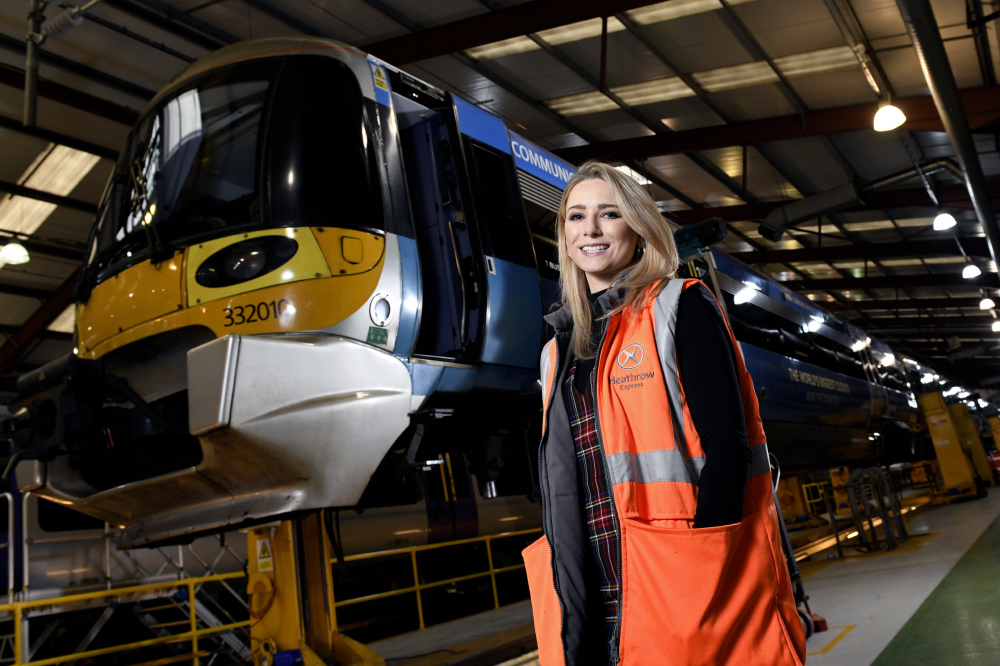When you think about railway engineers it’s likely the first thing to spring to mind is - a man - dressed in orange hi-vis working on the track.

Aoife Considine
But having worked in the industry for the past five years I can tell you from experience this isn’t the case.
Not only have I discovered how brilliant and varied a career as a railway engineer can be, I’ve also been blessed to have worked with a diverse and amazing set of co-workers.
When I joined the rail industry back in 2014 as a graduate mechanical engineer I didn’t know very much about what I was embarking on.
I’d seen the statistics showing low numbers of women are pursuing careers in STEM but hadn’t realised just how bad the situation was.
In 2018 only 12 per cent of the UK engineering workforce was female - looking at just railway engineers alone this figure dropped to single digits.
With such woeful statistics its understandable women - particularly young women – have been discouraged from careers in rail.
But what the wider public may not know is there are opportunities within the rail industry for women.
They also may not know what it’s really like to be a young female in this industry – albeit one which is more than 90 per cent male.
But the few females working in rail are some of the most inspiring and driven people you’ll come across anywhere.
I consider myself extremely lucky to have worked under both male and female managers who have not considered gender to be a barrier.
All of them have helped me develop and have given me opportunities to progress into more senior positions.
I have also worked alongside brilliant and inspiring men and women who have shown it doesn’t matter what you look like - what matters is your passion for the work you do.
And no one is more passionate than those who work in rail.
Multiple studies have shown young people are more inclined to pursue careers when they can see people who look like them doing that job.
This is why it’s so important to highlight the diversity within the rail industry – to make it clear there are people from a variety backgrounds working within it.
But we shouldn’t just do this so young people find out what a great career it is.
We need to showcase to absolutely everyone how their skills might make them perfectly matched for a job in rail.
In my current role as fleet engineering manager for Heathrow Express I use critical thinking and problem solving to deal with incidents as they happen.
I also need to be a good communicator and be able to work well with lots of other people - from senior managers to technical staff.
Technical know-how is important but it’s vital I understand the impact of seemingly small decisions on passengers - such as locking a toilet out of service.
In the coming years, major projects like Crossrail and HS2 will be taking place – not forgetting the new carriages which are being manufactured for London Underground.
As a result there’s arguably never been a better time to embark on a career in rail.
In order to fill the roles needed to deliver these huge projects it’s vital HR departments and recruiters recognise the transferrable skills from other safety critical industries such as oil and gas, pharmaceuticals and biomedical, along with ex-forces.
So if you’re looking for a rewarding career path which enables you to shape how people travel, improves safety for customers and gives you the chance to travel the world – wherever the tracks may take you – a career in rail could be just the ticket.
For further information on career opportunities in the rail industry, check out the Rail Week website [https://www.railweek.com] or come along to one of the Rail Week career events taking place across the UK between the 7th and 13th October.

